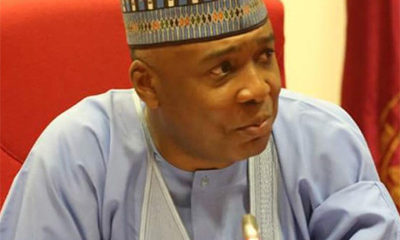Business
UPDATE: Labour Returns N27, 000 Offer For Federal Government

Eniola Olayemi
N27, 000 recommended approved yesterday by the National Council of State as minimum wage for states and the private sector has been rejected by Labour.
In separate statements, the Trade Union Congress (TUC) and United Labour Congress (ULC) described the decision as unfortunate and shocking.
Lagos lawyer Femi Falana (SAN) said last night on the Council’s approval: “With profound respect, the members of the Council acted ultra vires as it has no power whatsoever to approve minimum wage. It is not an approving authority but an advisory body to the president in the areas listed in Part 1 of the Schedule to the Constitution. And the areas do not cover minimum wage.” Falana is Nigeria Labour Congress (NLC)’s lawyer.
The TUC said in the statement signed by its President Bobboi Kaigama that the decision must not be allowed to stand because it will set a wrong precedence for the future, arguing that the Council lacked the power to the position already taken be statutory bodies.
Kaigama said: “Let it be known that N30, 000 minimum wage is a product of negotiation, not legislation, not advice and not a decree.
“Minimum wage issue therefore, is moving to a new theatre, the National Assembly. We expect the representative of the people if really they are to do the needful during the public hearing.”
According to the ULC, the news that the National Council of State unilaterally proposed N27, 000 as the new National Minimum Wage “is shocking and goes against the grain of all known traditions and practices of industrial relations especially as it concerns National Minimum Wage setting framework.
Its President Joe Ajaero said: “ULC rising from its just concluded Central Working Committee (CWC) meeting today in Lagos rejects in its entirety the proposed N27, 000 which is contrary to the N30,000 agreed by the National Minimum Wage Tripartite Committee and which has since been submitted to the President.
“We state that the National Council of State in a National Minimum Wage setting mechanism is an aberration. It is also important that we make it clear that the National Council of State does not have powers to approve, confirm, affirm or accept any figure as the new National Minimum Wage. What they have pretended to have done is therefore without any force of Law, standards or other known practices of Industrial Relations the world over.”
He said that it is a mockery of the essence and principle behind the setting of a National Minimum Wage to attempt to segregate it between federal workers and state workers.
“We want to state that workers are workers everywhere whether at the federal level or at the state level. They all have the same challenges; go to the same market, same schools and much more they suffer the same fate. You cannot therefore pay them differently.
“The government’s attempt at this dichotomy is an effort at segregation and apartheid in nature. It is an attempt to put a sword within the trade union movement and to further the marginalisation of private sector workers in Nigeria thus seek to weaken the trade union movement in the country.
“ULC saw this coming earlier in January and that was why we distanced ourselves. We will, however, in the next few days in consultation with other labour centres, if they are still in the struggle for a just national minimum wage, take steps to ensure that the interests of Nigerian workers as it concerns the National Minimum Wage are protected.”










